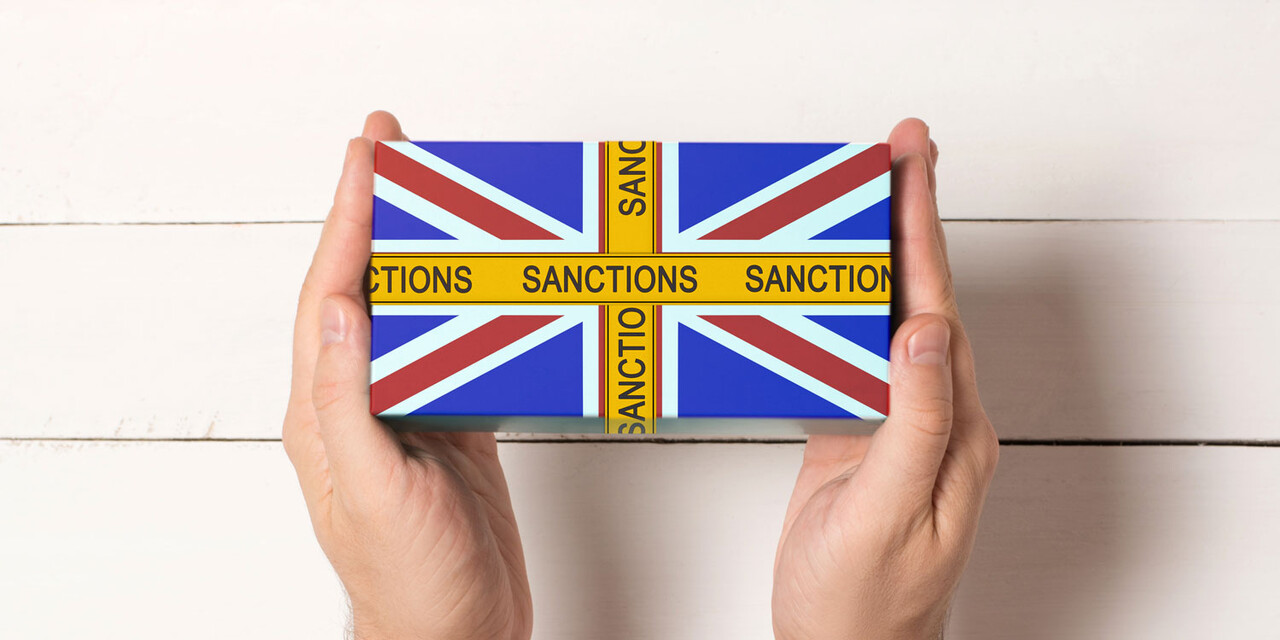
The new UK sanctions regime: Key changes after Brexit
After Brexit, the new UK sanctions framework officially came into effect on January 1, 2021. What's new? And are there differences to the EU legislation?

After Brexit, the new UK sanctions framework officially came into effect on January 1, 2021. What's new? And are there differences to the EU legislation?
After leaving the EU, the UK no longer falls within the scope of EU regulations. With Brexit, the EU sanctions regulations that previously applied are no longer valid in the UK. Against this background, the UK had to create a new set of regulations within the scope of its national law that reflect the sanctions measures applicable to the UK.
With its Sanctions and Anti-Money Laundering Act 2018 , the UK has a basis for legitimization to enact national sanctions legislation. In addition, there are other UK laws, such as the Export Control Order of 2008 and the Anti-Terrorism, Crime and Security Act of 2001, which serve as a basis to enact restrictions on global trade through, for example, export control regulations or anti-terrorism measures.
Given that the UK plays – or has played – an important role in the EU's international and security policy, it is hardly surprising that the UK has largely adopted the EU's sanctions regulations in its British national law in the first step.
It remains to be seen what course the UK will take in the future with its sanctions policy. There is currently no official cooperation framework between the UK and the EU for a common approach to dealing with foreign policy challenges.
However, it should be noted that most sanctions which are reflected in the EU's sanctions regulations are issued based on UN Security Council resolutions. Since the UK is also obliged to implement these international requirements, the sanctions regulations in the EU and the UK will also be largely congruent in the future.
Financial sanctions imposed by the UK on individuals, companies, and organizations are consolidated in the UK Sanctions List. The UK Sanctions List came into force at 11pm on December 31, 2020.
The UK Sanctions List contains all designations made under the UK Sanctions Act (Sanctions and Anti-Money Laundering Act 2018). The UK imposes comprehensive financial sanctions on listed persons. These sanctions prohibit direct provisions of assets as well as indirect provisions. This means that not only direct business partners must checked, but also sanctioned ownership and control must be examined to ensure that no indirect provisions take place either.
Such indirect provisions occur when a non-listed business partner is owned by a person that is sanctioned ("sanctioned ownership and control"). This concept is similar to that under EU sanctions regulations. However, the new UK sanctions regime provide more detailed explanations as to when a listed person or party is deemed to exercise indirect control over someone for the benefit of sanctioned persons.
Which entities fall within the scope of the UK financial sanctions is found in Section 21(3) of the UK Sanctions Act. The regulation applies to legal persons, entities, or bodies with reference to business taking place in whole or in part in the UK.
For companies that fall within the scope of the UK financial sanctions, the new UK sanctions regime adds another layer of complexity to their internal trade compliance programs (ICPs).

AEB's Compliance Screening software runs automated business partner screening in the background of your transactions. Optional integration into your ERP/CRM systems such as SAP®, Salesforce, Microsoft Dynamics 365, and more. And with extended content from Dow Jones and Reguvis.
In light of new UK guidance published on January 4, 2021, the following areas are of particular relevance for AEB readers and affected traders:
Under the UK Sanctions Act, the OFSI can issue general licenses when other licensing derogations or exceptions are not available. However, such UK general licenses do not cover additional license requirements by EU member states. So, entities that are subject to both UK and EU jurisdiction still need to apply for the applicable, specific license in the relevant EU member state. Under the current EU sanctions regime, such general licenses are not available.
During the Brexit transition period, some UK licenses were still valid for activities in EU member states. This enabled a UK entity, for example, to export controlled goods from an EU member state to a sanctioned destination. This is no longer the case. Licenses granted in the UK are now only valid in the UK jurisdiction.
The UK has replaced EU Russia-related sectoral sanctions with a single Russian sanctions regulation and updated its list of persons named in relation to financial and investment restrictions accordingly. Persons exempt from these sanctions refer to UK-based subsidiaries (as opposed to EU-based subsidiaries under EU law). And non-restricted trade exemptions only apply when the trade in question has a UK nexus (rather than an EU nexus under EU law).
For some businesses, this may result in requiring authorization from both the EU and the UK. Another difference: The UK’s new Russian sanctions regime uses the term “financial services” instead of the EU’s “financial assistance”. Under the EU sanctions regime, “financial assistance” does not currently include payment processing while under the new UK sanctions regime, “financial services” includes both payment and money transmission services.

In this challenging environment, automation is key to successful internal compliance programs (ICP). Software delivers security – in one jurisdiction as well as across applicable regions. Contact us to discuss your compliance screening, export controls, and license management requirements. Or visit our website to learn how AEB solutions can support your business. And make sure to take a look at “SCO with Dow Jones” if you need help in the area of sanctioned ownership and control.